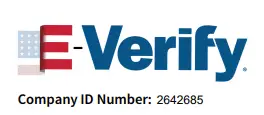A Technical Support is designed to equip individuals with the knowledge and skills required to assist users in troubleshooting and resolving issues related to hardware, software, networks, and other IT systems. These courses prepare participants for roles in customer support, IT help desks, and technical service teams.
Key Features of a Technical Support Course:
Focus Areas:
- Basic and advanced troubleshooting techniques.
- Hardware and software installation, configuration, and maintenance.
- Networking fundamentals and common connectivity issues.
- Operating systems (e.g., Windows, macOS, Linux).
- IT service management frameworks (e.g., ITIL, Agile)

Practical Approach:
- Emphasis on hands-on labs, real-world simulations, and problem-solving scenarios.
- Includes live troubleshooting exercises to mimic customer or client interactions.
Target Audience:
- Aspiring technical support professionals.
- IT professionals seeking to enhance their troubleshooting and support skills.
- Individuals preparing for IT certifications.
Delivery Modes:
In-Person
Classroom or lab-based learning with direct mentoring.
Online
Self-paced or instructor-led courses with video tutorials, quizzes, and virtual labs.
Blended
A mix of both formats.
Certification:
Often aligned with globally recognized certifications, such as:
CompTIA A+
- ITIL Foundation
- Microsoft Certified: Modern
- Desktop Administrator Associate
- Cisco Certified Support Technician (CCST)
Course Structure:
Often aligned with globally recognized certifications, such as:
Foundational Topics
Understanding IT systems, hardware components, and software platforms.
Problem Diagnosis
Identifying, analyzing, and prioritizing technical issues.
Communication Skills:
Handling customer interactions, explaining technical concepts, and providing clear instructions.
Advanced Support:
Managing enterprise systems, cloud-based platforms, and virtual environments.
Key Learning Objectives:
Technical Proficiency
- Diagnose and resolve common hardware/software issues.
- Manage IT tools for remote support and monitoring.
Customer Interaction:
- Develop effective communication and active listening skills.
- Manage difficult situations and provide step-by-step guidance.
Documentation and Reporting:
- Maintain logs of reported issues and solutions.
- Provide feedback to improve products and services.
Time Management:
- Prioritize tasks in high-pressure environments to meet Service Level Agreements (SLAs).
Career Opportunities:
Completing a Technical Support Course can lead to roles such as:
- IT Support Specialist
- Help Desk Technician
- Desktop Support Engineer
- Customer Support Representative
- Technical Services Consultant
Benefits of Taking This Course:
- Skill Development: Gain practical skills to manage and resolve IT issues efficiently.
- Certifications: Enhance credibility and job prospects.
- Versatility: Opens doors to various IT-related fields.
- Customer-Centric: Develops a service-oriented mindset.





